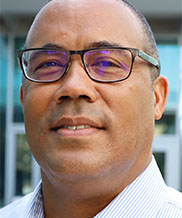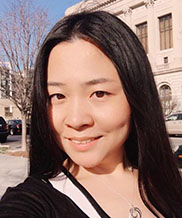Building a Trusted Agent to Facilitate Human Flourishing
Building Trust through Technology-enabled Intermediaries (Virtual Webinar Series)
October 15, 22, 29 and November 5
As people across the globe continue to adjust to implications of the global pandemic, the continued uncertainty elevates the necessity for trusted relationships. Believability and confidence between individuals, directly and indirectly through their devices, exists in a variety of contexts.
Many contexts require a trusted intermediary. This third-party mediates interactions, sitting between stakeholders. In some cases, these stakeholders are users of services or activities provided through digital platforms. In many cases, users contribute the data that creates the benefits they receive.
In all scenarios, trust is essential, and often technological tools are a key component for enabling those relationships, serving as a hub and adding algorithmic filters to deliver affective and cognitive security in mutually beneficial systems.
Join us as we explore how intermediaries, through systems and ecosystems, can serve to build trust networks between people in education and wellness. This series will investigate tools, processes, and strategies that are helping to build trust across a variety of contexts.
Among questions to be explored in this series are:
*How can technology serve as an enabler of trusted relationships?
*What are the human requirements for technology-enabled, trusted relationships?
*What pitfalls, and potential solutions, can be anticipated when digital intermediaries bridge human relationships?
November 5th, Building a Trusted Agent to Facilitate Human Flourishing
In this session, Keith Coleman and Ming Fu will share how the science of well-being can help build resilience and strengths and gain much needed positive emotions in a time of uncertainty. They will further discuss the role of technology in building trusted intermediaries and increasing access to well-being. They also welcome an open discussion about the usage of voice-assistants and the potential of voice-powered mental fitness practices addressing these critical areas…
*How we can leverage trust in the science of well-being during times of uncertainty.
*How positive technology can provide affordable, accessible solutions for community mental health.
*How positive psychology conversational tech platforms can intermediate, meeting people where they are, adding a personal fit for mental health practice.
Past “Building Trust through Technology-enabled Intermediaries” Sessions
Rafiq El Alami, Building a Digital Trust Ecosystem for Education
Ajay Madhok, Can a Trusted Intermediary Transform Systems Into Interoperable Ecosystems?
Presenters

Keith Coleman is Chief Strategy Officer Emeritus at the Tesla Foundation; a science and technology think tank centered on autonomous systems. Keith is a Stanford Angels & Entrepreneurs alumni investor and a mentor to startups. He is an adviser to Uvita: a conversational technology on-demand self-care, voice assistant platform that provides access to science-backed tools tailored for individuals by well-being experts. His leadership focused on reviewing combinations of robust data characteristics and technical education mentorship to identify and nurture talent, enhancing human potential for invention. A governmental affairs and economic research intermediary, his role advanced strategy examining the nexus between policy and innovation. This agile oversight is cited in the Stanford Graduate School of Education podcast Schools In – “Preparing Students for an Automated Future.” Now at the University of Pennsylvania, he engages in applied positive psychology that drives transformational learning to promote human performance and well-being. He serves on the Executive Council for the Advanced Manufacturing Partnership of Southern California (AMP SoCal): a U.S. Department of Defense, Office of Economic Adjustment, Aerospace and Defense Supply Chain initiative co-led by the City of Los Angeles and USC. He also serves as a Distinguished Visiting Scholar for mediaX at Stanford University, an interdisciplinary thought leadership program. Keith earned a B.A. in Economics from Stanford University, Stanford-in-Oxford/Magdalen College, and an M.A. in Applied Positive Psychology from the University of Pennsylvania (2020). He is a member of Stanford Angels and Entrepreneurs (SA&E) and Co-President of SA&E Southern California: alumni association groups that seek to unify and enrich the startup ecosystem by facilitating investment, education and mentorship opportunities for entrepreneurs and alumni investors.

Ming Fu is the co-founder of Uvita, a conversational technology for well-being. She graduated from the University of Pennsylvania with a Master of Applied Positive Psychology (MAPP).